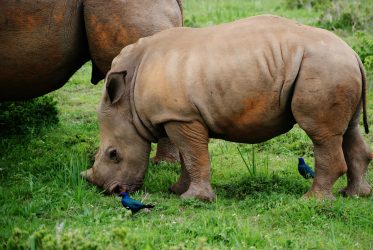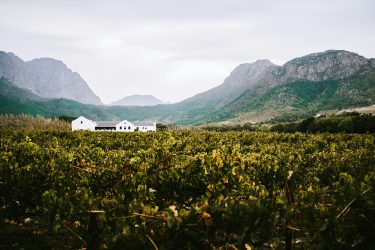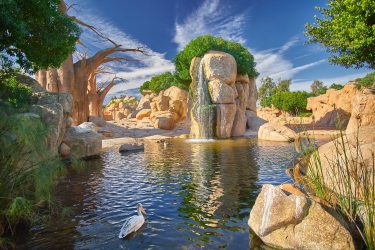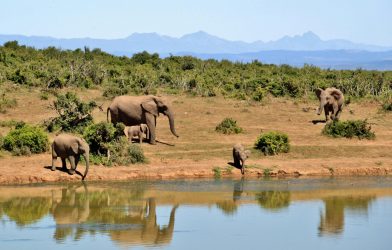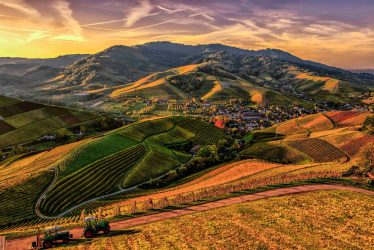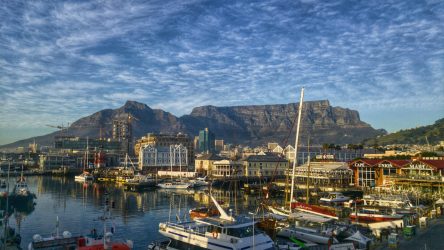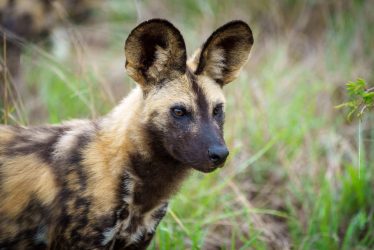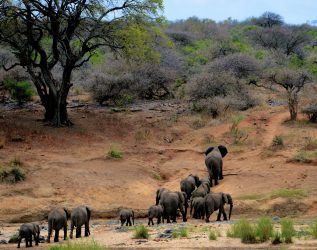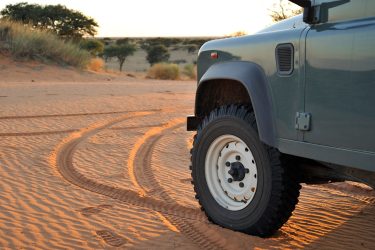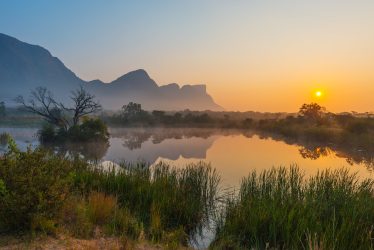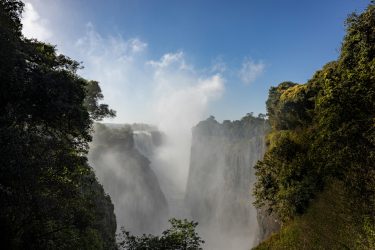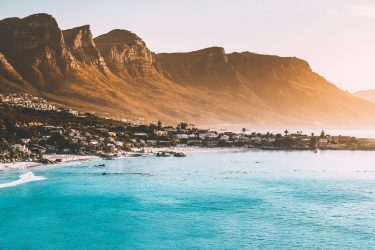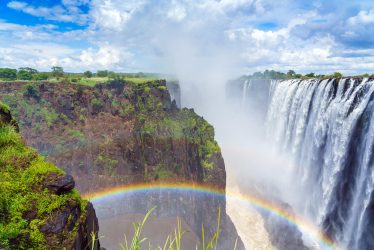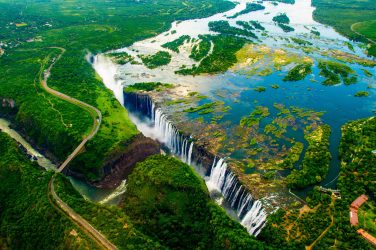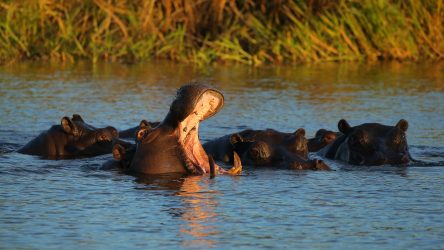WHY BOOK
Preferred agreement with Singita Lodges in Kruger National Park and Royal Livingstone by Anantara offering full commission and extending consortia amenities.
Preset packages with full suggested itineraries throughout Kruger National Park, Botswana, Cape Town and Victoria Falls including touring and a variety of accommodations.
Private touring, VIP meet and greets in Cape Town and Johannesburg and Private touring in luxury vehicles.
HOW TO BOOK
Please complete our form and one of our Travel Sales Specialist will get back to you within 2-4 hours for more details. Africa4U (smartsheet.com); If you work directly with one of our reservations agents, please feel free to ask them about our new programs.
TRAVEL SMART PLAN
Due to the advance number of days required for cancellations of safari lodges and hotels we recommend that guest purchase Classic Vacations retail travel insurance or via their Advisor for optimal coverage.
COMMISSION LEVELS
All of our packages, tours and transfers, Singita Lodges, Royal Livingstone by Anantara pay full commissions. Belmond Safaris, Mount Nelson, A Belmond Hotel, Cape Town and One&Only Cape Town are capped at 12%.
CONSORTIA
All of our partners pass full amenities when booked via Classic Vacations.
TOURS AND ACTIVITIES
We have a range of private tours offered in Cape Town, Johannesburg, and Victoria Falls. Please speak with one of our specialists for more details.
ENTRY REQUIREMENTS
Visitors to Africa (all countries) must have a passport that is valid for at least 6 months beyond the intended departure date with atleast 2 consecutive side by side blank pages for each country you will be visiting in Africa for stamps. A return ticket and adequatefunds are required to enter.
USA and CAN passport holders visiting South Africa for ninety (90) days or less for tourism / business purposes do not need visas.
USA and CAN passport holders visiting Botswana for ninety (90) days or less for tourism / business purposes do not need visas.
USA and CAN passport holders visiting Zimbabwe may obtain a 30 day visa at the airport or border ports of entry.
USA and CAN passport holders visiting Zambia for ninety (90) days or less for tourism / business purposes do not need visas.
SEASONS, CLIMATE AND WEATHER
South Africa seasons are opposite of the USA with winter months May-September and summer months November-March.Temperatures are measured in centigrade with average highs of 28°C (82°F) to average lows of 8°C (46°F) in the summer monthswhile winter temperatures range from 1°C (34°F) at night to around 18°C (64°F) in the day. Much of the rain falls in the Western Capein the winter, differing from the rest of the country, which experiences summer rainfall. The South African climate boasts more thanits fair share of sunshine, recording an average of 8.5 hours a day.
Botswana generally only has two seasons, summer and winter. Summer is rainy season, November through April with January and February being the wettest months. Dry season is winter, May through October. We recommend going during dry season when animal viewing will be at its best.
Zambia and Zimbabwe generally have three seasons, hot and dry mid August-mid November; rainy season mid-November-April;and cool and dry season May-mid August.
ELECTRICITY AND PLUG STANDARDS
Current is 220/240 volts at 50 cycles per second. A three-point round-pin adapter plug should be brought for your electrical appliances.
CLOTHING AND DRESS RECOMMENDATIONS
General: Always bring a hat, sunglasses and sunblock as the sun can be strong even in the winter months. Walking shoes are a good idea all year-round, with warm socks in the winter. For game viewing, a couple of neutral-toned items will be useful, but there’s no need to go overboard. A good pair of walking shoes is advisable. For the evening, if you are dining at an upmarket restaurant or seeing ashow, smart-casual attire is recommended. Don’t forget a bathing suit as most safari lodges offer private pools with accommodations.
Summer: Bring clothes that are cool, light and comfortable as summer temperatures can get to 30-40 degree Celsius range. Anumbrella or raincoat during summer is recommended as this is when most of the country gets its rain.
Winters: Are generally mild, there are days when temperatures do dive, so be prepared with a jacket. Cape Town gets its rain duringthe winter season so it’s advisable to bring rain gear along.
FOR SAFARI, WE RECOMMEND LAYERING YOUR CLOTHING
Game drives take place early morning and evenings, and it is quite cold before the sun rises and after it sets. The day-time temperatures can be warm and sunny, and it can get quite hot. Light, natural fabrics like cotton and linen are recommended forduring the day (shorts, t-shirts, summer dresses) and in the evenings, layer up with long trousers, long sleeve vests and a warmjacket. Formal wear is not required, most lodges allow you to come straight from game drive into dinner. We recommend neutraltones and light colors. Certain colors, like black and navy blue attract Tsetse flies in East Africa and dark colors attract the heat.Brightly colored clothing can also be distracting on safari. If you plan to do a bush walk, neutral colors are advised. Avoidwhite/bright colors for bush walks.
SUGGESTED SAFARI PACKING LIST
- Long trousers or denim jeans
- Long sleeve vests/t-shirts
- Shorts, t-shirts, summer dresses
- A warm jacket, fleece, or windbreaker
- Wool hat or beanie, gloves, and scarf
- A good pair of walking shoes
- Socks to wear with walking shoes – especially if you plan ongoing on Bush Walks
- Sandals or flip-flops for during the day at the lodge and some closed shoes or sneakers for evenings
- Wide-brimmed sun hat, sunglasses, and a good sunscreen
- Swimming costume/bathing suit
- Camera, video camera binoculars, spare memory cards andcharging equipment. Most lodges do provide spare sets of binoculars on game vehicles and at the lodges if you don’thave your own.
TRAVEL, TRANSPORT AND GETTING AROUND
Travelling around South Africa is relatively easy by air, road and rail. An extensive tarred road system makes travelling in South Africa by vehicle convenient and easy. You will find gravel roads in rural areas. Please do note: A valid international driver’s license is required. Driving is on the left-hand side of the road. Wearing seat belts is compulsory and mobile phones can only be used ‘hands free’. Speed limits are generally set at 120km on freeways, 100km on secondary roads and 60km in urban areas. Toll fees apply on certain national roads. Petrol stations are widespread.
You can easily get across the borders of Zimbabwe and Zambia but you will need your passport If you are crossing the Victoria Falls Bridge by foot please remember to bring your passport with you. You may need to pay for a multiple entry visa so please have some cash on hand.
Road travel in Botswana often involves driving long distances in sparsely populated harsh environments. Please ensure you have hired an experiences local driver or are in the safari camp vehicles.
FOOD, DRINK AND CUISINE ADVICE
Standards of hygiene in relation to food health and safety in South Africa, are generally high in hotels, restaurants, pubs and nightspots. Tap water in South Africa is safe to drink and cook with when taken from taps in urban areas. Not all tap water in rural areas is safe for consumption, so take precautions if necessary. It is safe to eat fresh fruit, vegetables and salads, and have ice in drinks. South Africa’s fish, meat and chicken are of excellent quality. Restaurants are subject to South Africa’s food safety control legislation which is implemented by local government. Street food is not as common in South Africa as it is in other countries, although vendors selling traditional snacks and meals can be found in city centres and townships. Food safety in such instances cannot always be guaranteed.
While the tap water is generally safe to drink in Botswana, Zambia and Zimbabwe we recommend drinking bottled water to avoid any unwelcomed issues.

